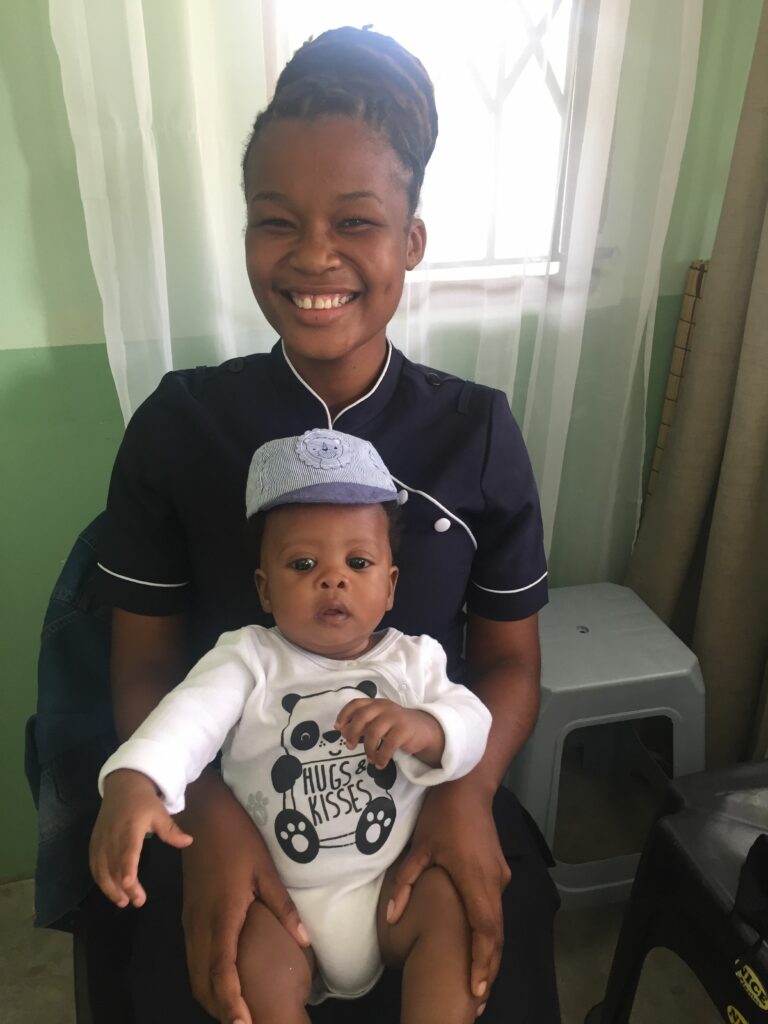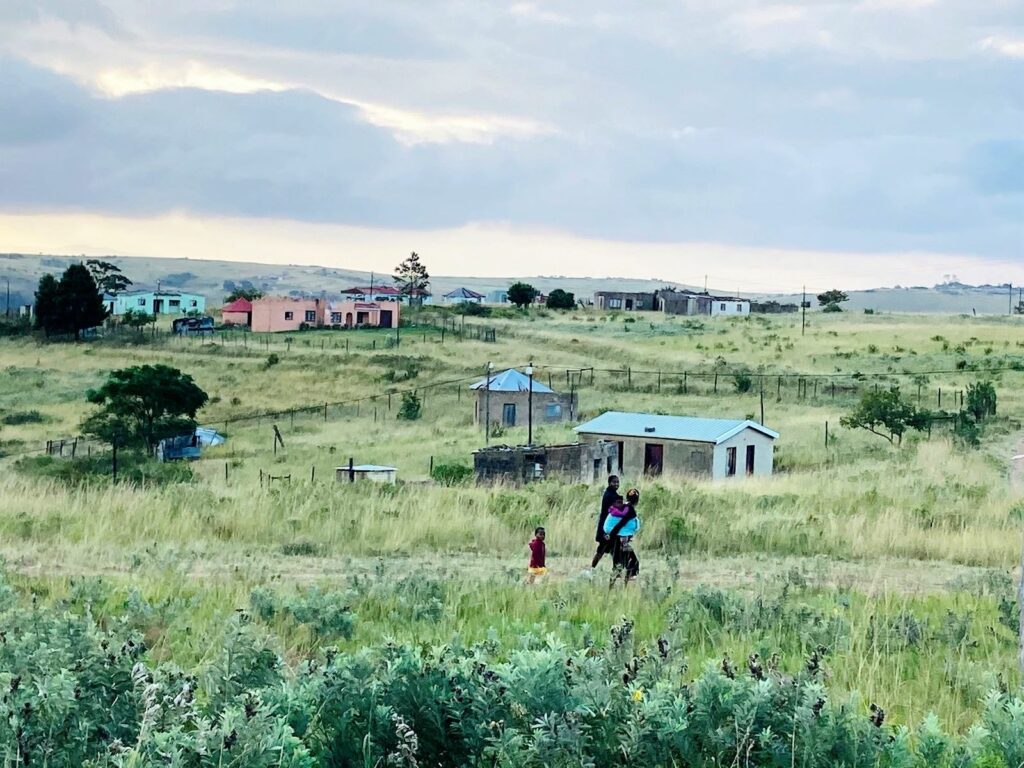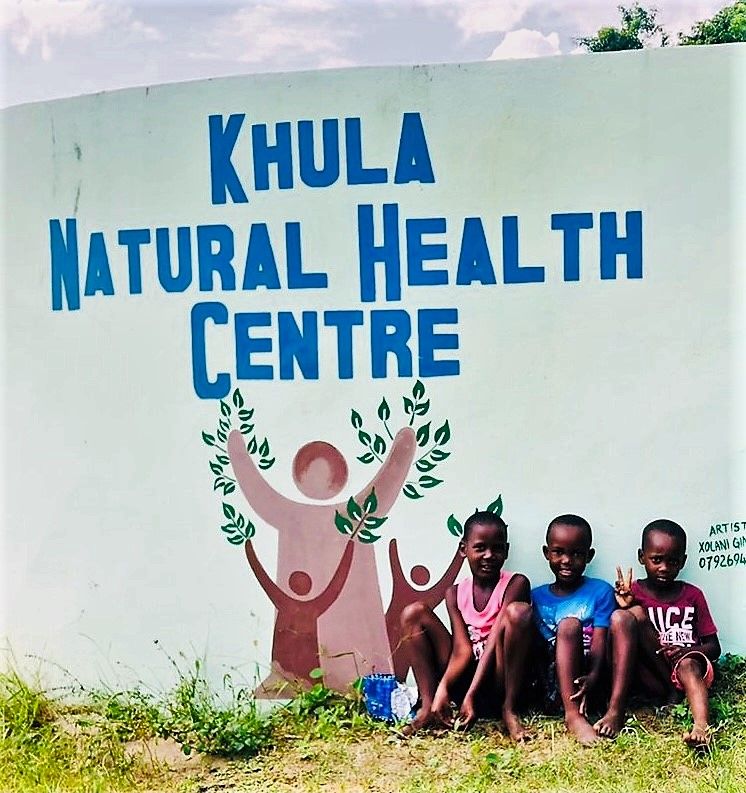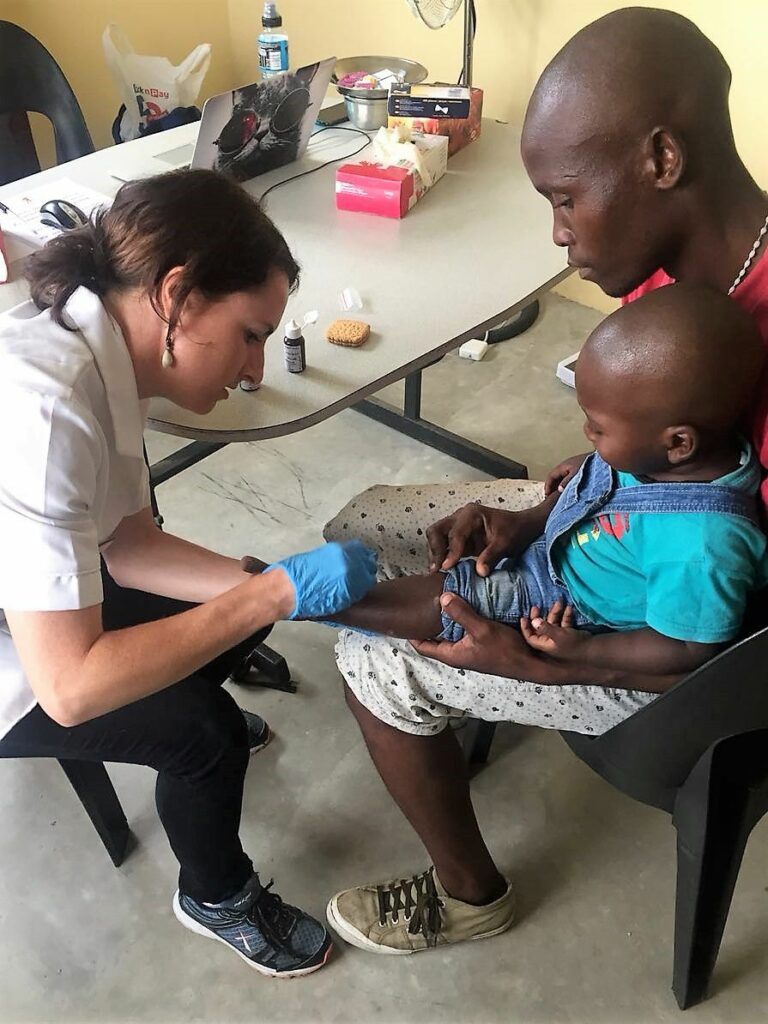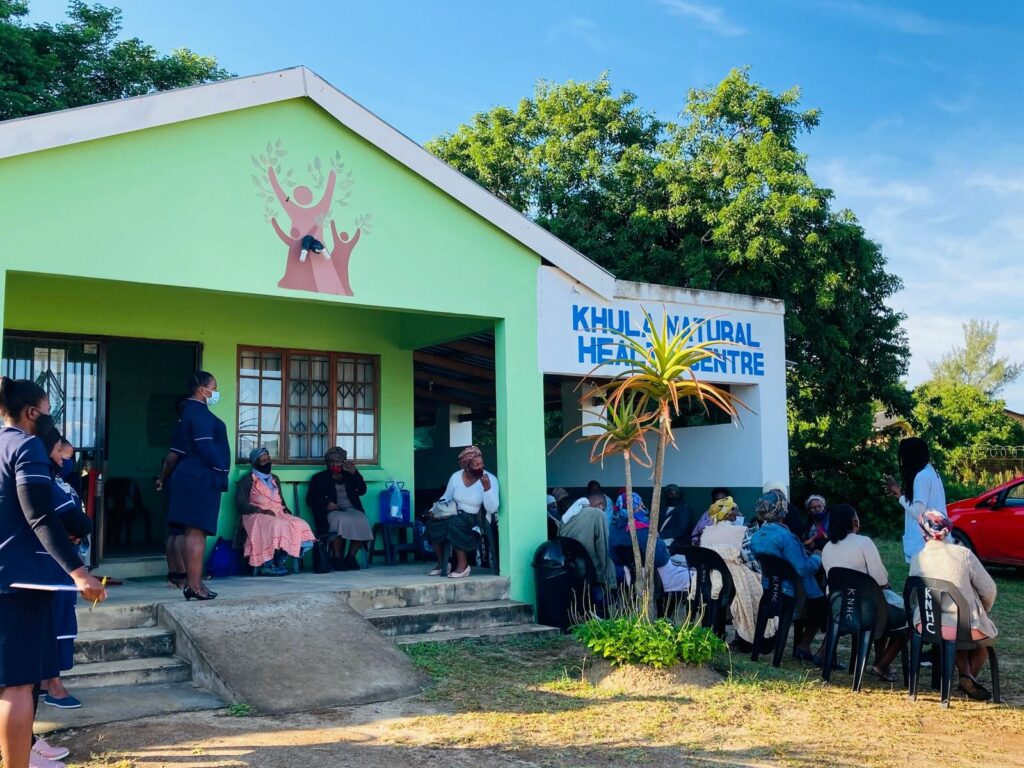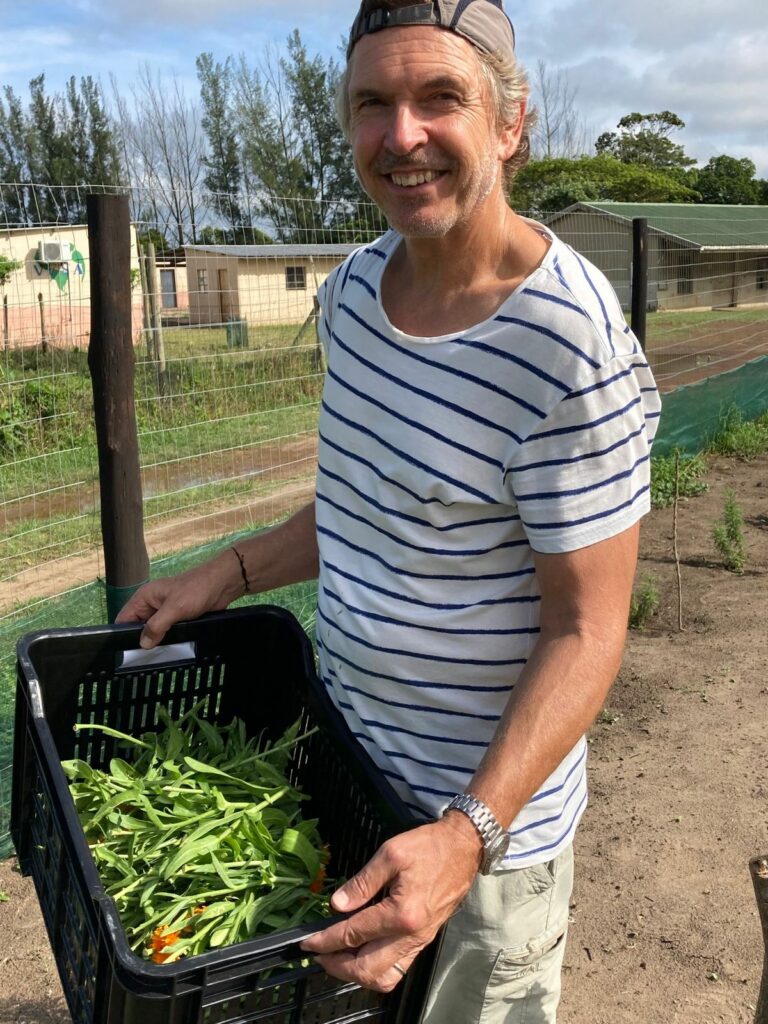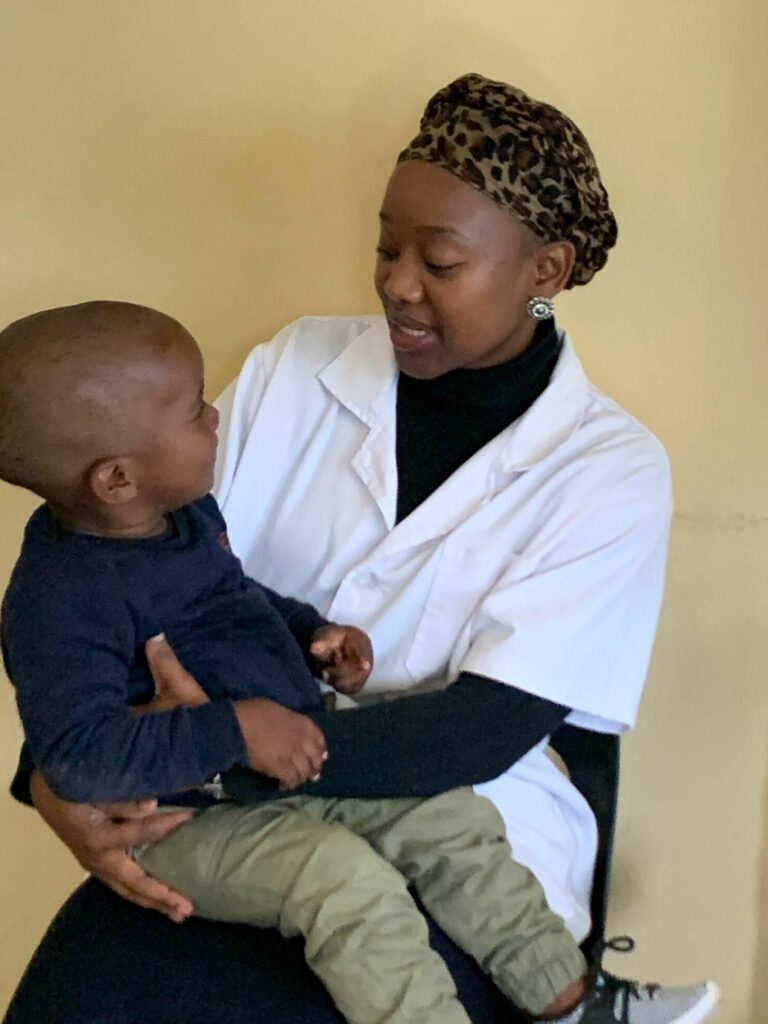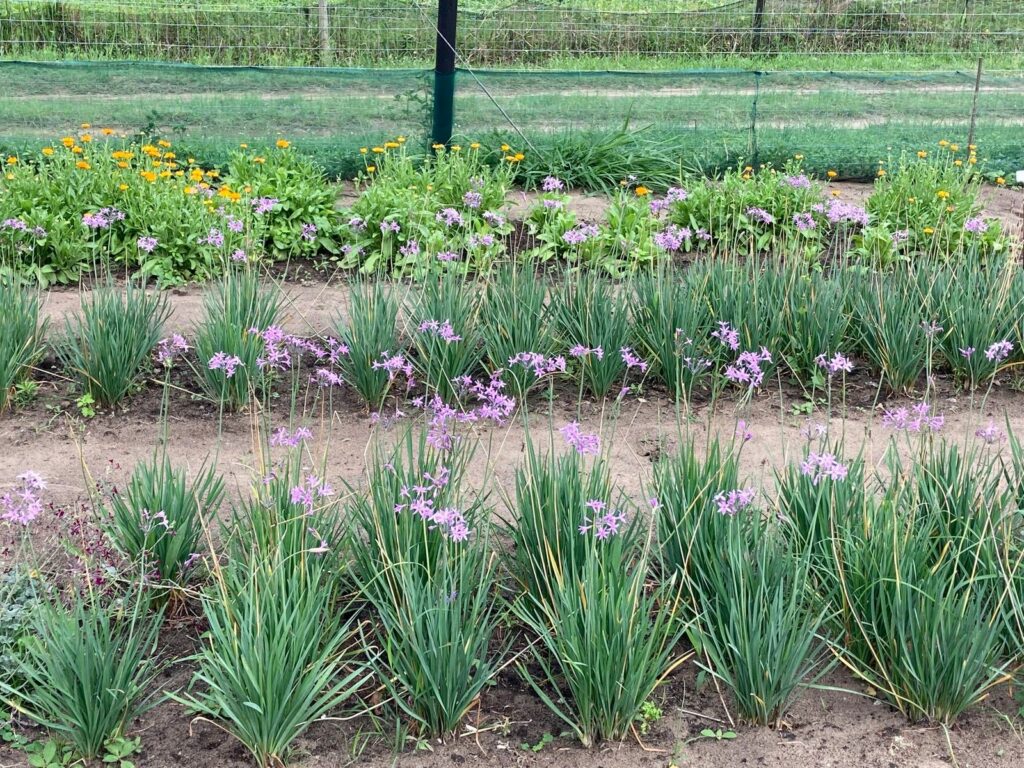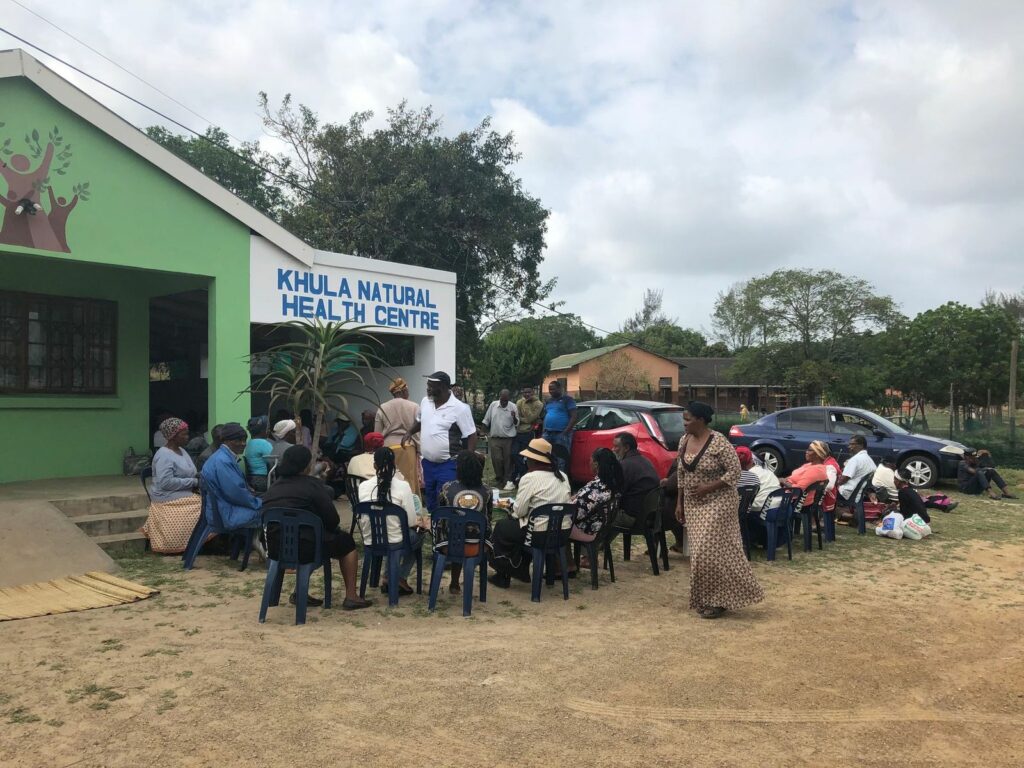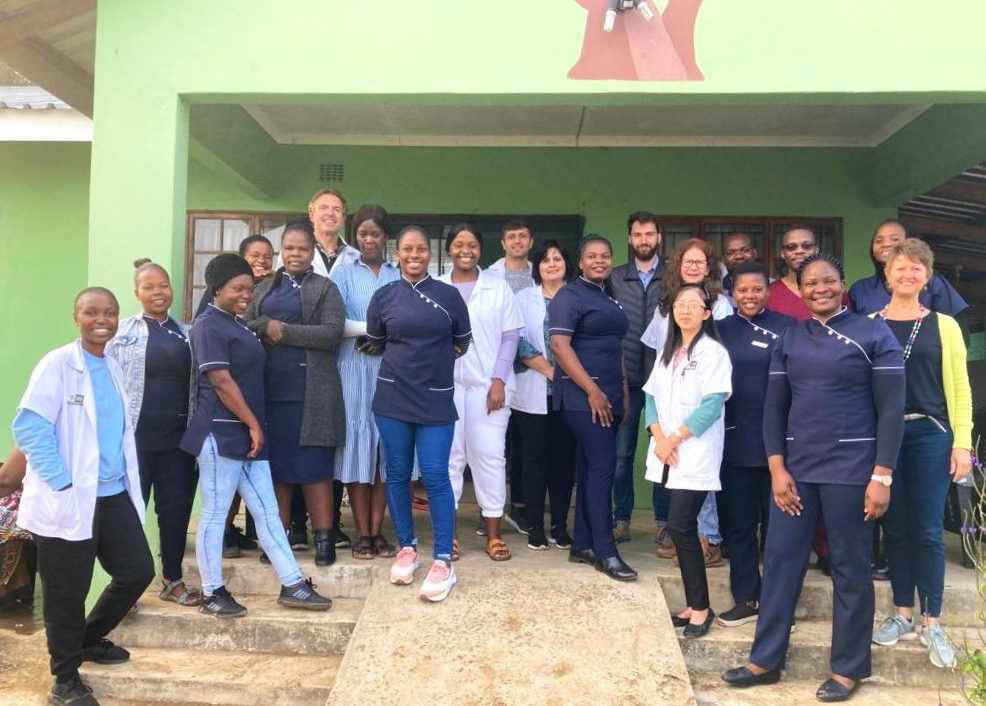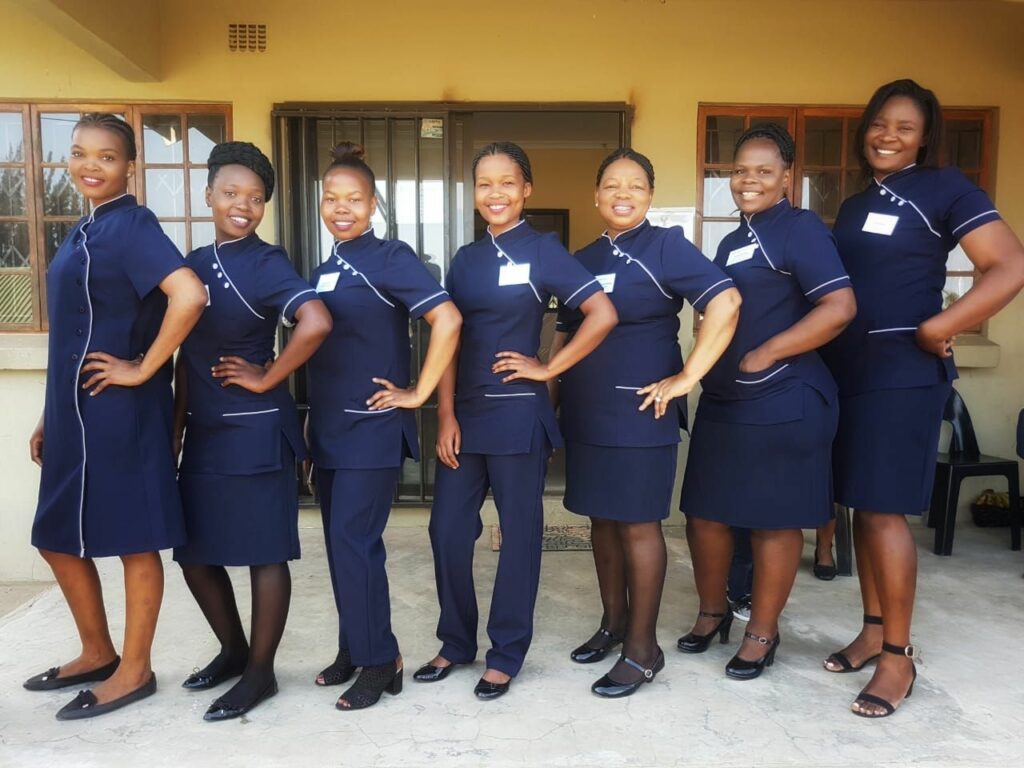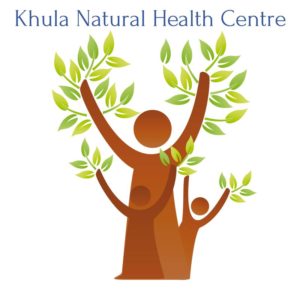 Introduction
Introduction
Although access to health care is considered a basic human right in South Africa, the system is severely underfunded and there is a corresponding lack of resources, especially in rural areas. Also in Kwazulu-Natal, basic health care cannot be provided by government due to the lack of infrastructure and human resources. Given the shortage of skilled workers, professionals from allied, complementary health professions could play an important role in supporting primary health care. Complementary health centres could help reduce the burden on primary health care in the country. WHO recommends the inclusion of complementary and traditional medicine systems as an affordable and culturally acceptable way to achieve universal health coverage.
Khula Village, in rural KwaZulu-Natal (also called Zululand) in South Africa, is home to about 20,000 adults and about 23,000 children. Together with the surrounding Umkhanyakude District, this results in a catchment area of far more than 200,000 inhabitants. Many AIDS orphans and abandoned grandparents live in this area. The reason for this is that the generation in between, which usually takes care of these two age groups, has mostly already died due to HIV / AIDS or moved to the big cities in search of work. According to estimates, about 26% of the population in Kwazulu-Natal is HIV positive, with unemployment in Khula Village at about 70%. Kwazulu-Natal is the province with the highest HIV rate in South Africa and even one of the highest rates worldwide. 80% of the patients at Khula Natural Health Centre are directly or indirectly affected by the HIV disease.
Khula Natural Health Centre (KNHC)
As part of the promotion and improvement of primary health care in South Africa, the first homeopathy clinic was opened in Khula in April 2017, known as the Khula Natural Health Centre (KNHC).
The majority of patients are women and children. All acute and chronic pathologies are treated medically, as well as, with the use of homeopathic medicines in the clinic. Conditions mainly seen, but not limited to, are musculosceletal and rheumatic complaints, hypertension, tuberculosis, diabetes, neurological complaints, HIV with complications, epilepsy, various skin rashes and acute inflammations, wounds, traumas, parasitic infestations, and many more. In the sense of integral health care, cooperation with the government clinics and the government hospital is extremely important to the team.
Since the opening of KNHC in April 2017, more than 26´000 patients have received treatment to date. In the beginning, KNHC was open one week per month and since July 2019, due to the extremely high demand, also from neighbouring areas, the operation has been increased to two weeks per month, i.e. 24 weeks per annum. Since January 2022 KNHC is operational for 30 weeks per annum. The aim is to be able to offer full-time operation through sufficient financial resources in order to be able to carry out the urgently needed consultations and treatments.
Employees
The team on site is composed as follows:
- 5 South African homeopathic doctors
- 3 – 4 homeopathy students / interns from South Africa
- 1 clinic coordinator
- 1 HIV / Aids counsellor & community representative
- 7 translators from Khula Village
- 1 psychologist / social worker (voluntary basis)
- 2 cleaners
- 1 caretaker / technician / gardener
The translators are urgently needed as most of the patients only speak isiZulu and no English.
The importance and impact of Khula Natural Health Centre in South Africa is undisputed. The government is also aware of the relief and support which KNHC provides and closer cooperation is being actively sought.
Goal
The long-term goal is for Khula Natural Health Centre to be recognised as a government clinic and to be at least partially funded by the government of South Africa. Experience shows that recognition by the Department of Health and the elaboration of such a collaboration with government takes time. With such collaboration, the KNHC model could be multiplied and applied to similar rural areas in South Africa. Thus, more people could gain much-needed access to good medical care and the public health system could be considerably supplemented and relieved. Until then, it is essential that the clinic is financed and maintained through donations.
Offer
Education
In collaboration with the University of Johannesburg and Durban University of Technology, Khula Natural Health Centre has for some time been able to offer South African homeopathy students and interns, as well as Swiss homeopaths and homeopathy students, good internship and patient observation opportunities. KNHC is characterised by a good infrastructure and excellent opportunities for learning conventional medicine and homeopathy. For this reason, the South African government has recognised KNHC as an official “Training and Internship Site”. As many patients with serious illnesses also visit the clinic, the students and interns gain very good insight into the treatment of serious pathologies. Since June 2019, Swiss homeopaths and homeopathy students have been visiting Khula Natural Health Centre as a valuable learning opportunity and sitting in on consultations with South African homeopathy doctors. These internships are also officially recognised in Switzerland as continuing education hours.
But it is not only the medical staff and interns who benefit from Khula Natural Health Centre: well-educated young people from the area face a big challenge when it comes to finding a job. Therefore, KNHC offers permanent employment to 10 young black women and one man from Khula Village who have been trained and educated in translation, basic patient care, administration, computer skills, cleaning and gardening.
Psychosocial assistance and counselling
Many patients at KNHC, especially women and young adults, are grateful for the free psychosocial counselling sessions offered by a qualified social worker and psychologist, Thembelihle Zulu, on a regular basis. Miss Zulu is from the area and speaks isiZulu which is vital to the patients seeking counselling, since they can freely express themselves in their mother language. Patients feel respected and understood, since Miss Zulu is also best acquainted with the cultural norms of the area. Most patients seek counselling due to alcohol and drug abuse and violence – political and domestic, especially rape. South Africa has the highest incidence of rape worldwide.
Medicinal Plant Project
Homeopathic remedies are mostly of plant origin. Within the framework of a sustainable approach, it is very important to the Khula Foundation to involve the local population in the projects and to teach them important aspects. This includes, for example, the cultivation of various indigenous medicinal plants to produce homeopathic remedies for their own use at low cost. With this project, not only can remedies be produced more affordably, thus containing costs, but jobs can again be created for people from Khula Village to further counteract the high unemployment rate.
Effectiveness
With the operation of KNHC, primary health care is improved in a sustainable way. Patients at KNHC receive good medical consultations and treatment from South African homeopathic doctors and the homeopathic remedies are used as a complement to conventional medicine. As homeopathy has no side effects, it can be safely used by pregnant women, babies and young children, as well as the elderly. Experience from previous work, as well as a recently conducted survey, shows that most patients, whether acutely or chronically ill, feel much better after additional homeopathic treatment. Children and adolescents were able to attend school again or pursue their education. The treated patients feel fit and healthy again to take care of their children and the elderly. For example, the immune system of HIV patients can be strengthened by means of homeopathic treatment, so that accompanying symptoms disappear and the patients become stronger and thus able to work again. Thanks to the good cooperation between the Khula Natural Health Centre and the government clinics, supported by the local Zulu chief, the centre can relieve and complement the surrounding institutions and thus bring life-saving added value to the patients. But it is not only in medical care that KNHC strongly supports the community; the local economy also benefits greatly from the operation of the clinic.
Homeopathy
Homeopathy is a treatment method of complementary medicine and is holistically oriented. As a holistic medicine, homeopathy works when the cause and not their consequences are treated. With homeopathy it´s possible to treat and heal many diseases. As mentioned above, in areas such as South Africa, the WHO recommends complementing conventional health care with complementary medicine, such as homeopathy.
Homeopathy is more popular in India than in any other part of the world. With strong similarities to South Africa, in terms of its rural communities, widespread income inequality and its healthcare system, India has successfully integrated homeopathy and traditional medicine into its national healthcare system (AYUSH). According to the Indian government, about 10% of the Indian population (more than 100 million people) use homeopathy exclusively for primary health care. Thanks to this approach, the country has managed to achieve the WHO recommended benchmark of “doctor to patient 1:1000”. Based on the experience from India and the first years of operation of the KNHC, it can be said that a similar approach using homeopathy can and will alleviate the problems in the South African health system.
This makes homeopathy an effective and affordable addition to primary health care in South Africa.
Partnerships
University of Johannesburg (UJ) & Durban University of Technology (DUT)
Homeopathy is recognised and regulated by the South African government. Homeopathy is a six year full-time university course in South Africa, offered by the University of Johannesburg and Durban University of Technology, and is equivalent to a medical degree.
KNHC is officially recognised by the South African government as a “Training and Internship Site”. KNHC has therefore also established an official training and teaching cooperation with the Universities of Johannesburg and Durban and work closely with the affiliated government council regulating homoepathy in South Africa, the Allied Health Professions Council of SA.
The universities send two to three students / interns a week to Khula, where they gain valuable clinical and homeopathic experience. These students and interns conduct patient consultations and examinations independantly but under the supervision of a supervising clinician. Afterwards, the cases are also discussed with the homeopathic clinician to evaluate the treatment procedure.
The DUT Faculty of Health Sciences reached out to KNHC in April 2022 to seek collaboration in regard to training for the other courses, besides Homeopathy, which are offered by the Faculty of Health Sciences such as Chiropractic, Community Health, Nursing, Dentistry, Radiology and Somatology. KNHC was visited by the Dean and Vice Dean in April 2022 and strong mutual interest exists between the parties to sign a MOU for future collaboration.
Sipho Zungo and Somkhele Clinics
KNHC works closely with the government clinics, Sipho Zungo and Somkhele, to achieve the maximum impact of primary health care for the community with the limited resources available to these government clinics.
Nicoliene Potgieter Steiner & Manuel Steiner


